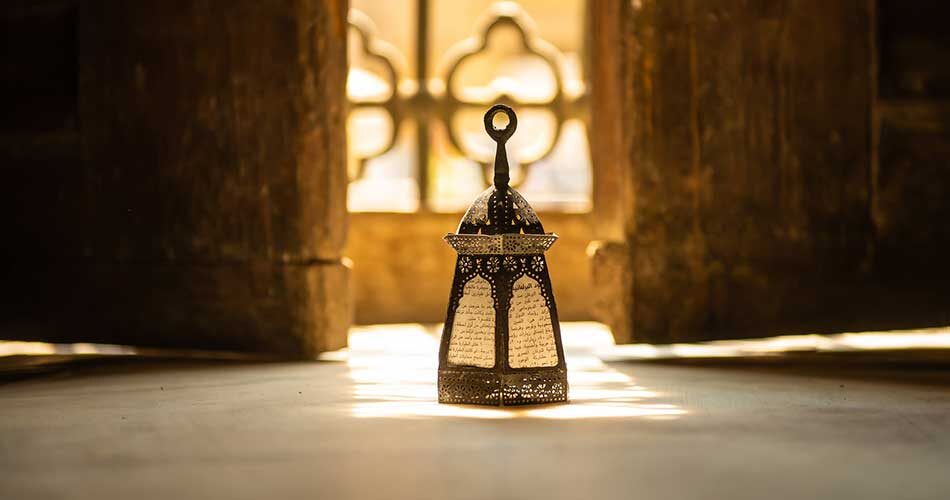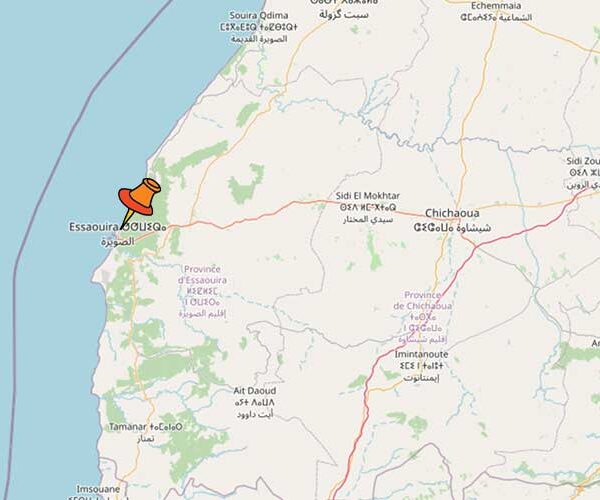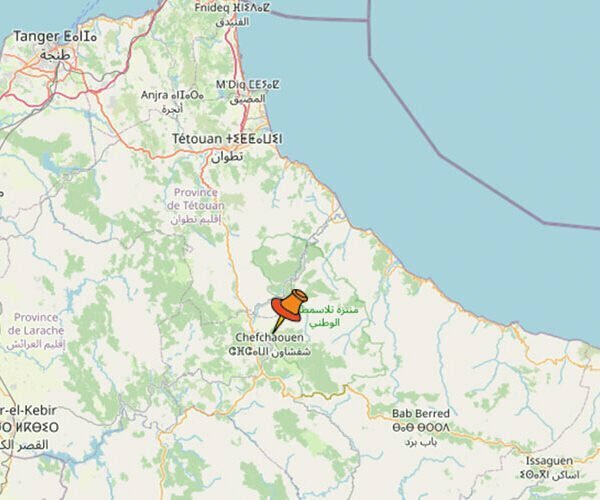The start of Ramadan in Morocco is right around the corner, and preparations for the holy month are at a fever pitch! Ramadan is known for the obligation of devout Muslims to fast, but many people do not know about the ins and outs of how Ramadan is observed and celebrated in Morocco.
Let’s start with the very basics – what is Ramadan?
Ramadan is a month in the Islamic calendar, during which observant Muslims are supposed to fast during the day. Fasting during Ramadan is actually one of the core beliefs of Islam, which are known as the 5 Pillars of Faith, so this is a very important practice.
Why do Muslims fast during Ramadan?
There are several reasons why Muslims fast Ramadan.
- As mentioned, fasting Ramadan is one of the five Pillars of Islam, and it is mandatory for all healthy Muslims to observe and practice this month of fasting. It really is one of the core definitions of being a Muslim and believing in and following Islam.
- Ramadan is a time to focus on our spirituality and religious beliefs, and to re-new our devotion and practice of Islam.
- Ramadan is also meant for us to understand the hardships of those less fortunate than us, who may not have enough to eat or drink throughout the day, which in turn instills empathy and compassion toward our fellow brothers and sisters in Islam.
- Ramadan is a month of blessings, and we try to do many good deeds and acts of charity. As part of the end of Ramadan, which is a holiday we call Eid el Fitr (“Holiday of the Breakfast”), we must give charity in the form of food, or money, based on the current value of local foodstuffs.
- Last and certainly not least, we believe that the Quran was revealed to the Prophet Mohammed (PBUH) during the month of Ramadan. The exact day in not known but is believed to be during the last 10 days of the month and reputed to be the 27th of Ramadan. We call this night “Laylat Al Qadr” which is usually translated to “Night of Power”, and on this night, blessings are received, prayers are answered, and past transgressions are forgiven.
When is Ramadan in Morocco?
The Islamic calendar is based on lunar months, and every year, Ramadan occurs about 10 days earlier than the year before. Some countries use scientifically-derived calculations to determine the start and end of Ramadan, but this is not the case for Ramadan in Morocco!
A few countries, such as Morocco, rely on an actual sighting of the New Moon to call the beginning of Ramadan, as well as the end of Ramadan. The moon has to be visible by “the naked eye” so even if other countries have started Ramadan and the moon isn’t seen in Morocco, Morocco does not start to fast. Conversely, Morocco also relies on a moon sighting for the end of Morocco, and there have been years when Ramadan in Morocco is one day longer or one day shorter than other countries!
Estimated dates for the beginning of Ramadan in Morocco:
- 2022: April 2
- 2023: March 23
- 2024: March 11
- 2025: March 1
Estimated dates for the end of Ramadan in Morocco (Eid el Fitr):
- 2022: May 3
- 2023: April 22
- 2024: April 10
- 2025: March 31
Who is supposed to fast during Ramadan in Morocco?
Any healthy individual who has reached puberty is expected to fast during the month of Ramadan. Children who have not yet reached puberty are exempt, but often, they may “fast” for a couple of hours, or half a day, to feel like they are also participating in Ramadan. There are also cases for exemptions, such as people who are sick (physically or mentally), the elderly, and women who are pregnant or breastfeeding, as well as other very temporary situations which allow Muslims to not fast on a given day, such as traveling a long distance or menstruation.
What’s all involved with fasting Ramadan?
Most people think of fasting as not eating, but fasting Ramadan is a little more involved. During Ramadan, Muslims should refrain from the following activities during fasting hours:
- Eating
- Drinking (including water!)
- Sexual Relations
- Smoking
- Backbiting / Gossip
How many hours a day do Muslims fast Ramadan?
The period of fasting is during the day, every day, for one month. It is usually simply described as “from sun-up to sun-down”, but really, the day of fasting begins about one hour and a half before the actual sunrise, and ends right around dusk.
You may know that Muslims are supposed to pray 5 times a day, which is another Pillars of Islam. The actual times to start and break the fast correspond to certain daily prayer times, which are Fajr (to begin) and Maghrib (to end). Prayer times are calculated for each location, and they are based on the position of the sun.
This means that when Ramadan falls during summer in the Northern Hemisphere, the numbers of hours in a day to fast Ramadan is very high, such as 15 – 22 hours! This can be a challenge for Muslims who may live in northernmost countries such as Iceland or Norway. In these cases, some communities may be encouraged to fast the full length of time, OR they may choose to follow the fasting times of Saudi Arabia. The opposite also holds true: when Ramadan falls during the winter months in the Northern Hemisphere, there are fewer hours to fast each day. This year, the length of the day for fasting during Ramadan in Morocco will be about 14.5 – 15 hours a day.
Morocco Local Insider Interesting Fact: The day in Islam actually begins in the evening, with the Maghrib prayer! So for example, you might see that Ramadan begins in the evening of April 2, but the first full day of fasting is actually on April 3. This is why Ramadan in Morocco isn’t determined until the evening!
How do Moroccans observe and celebrate Ramadan in Morocco?
Believe it or not, Moroccans look forward to the month of Ramadan! You might find this hard to believe, because sure, it is challenging to fast every day, day after day for a month, but consider it simply a form of intermittent fasting, which has become quite popular for its health benefits and weight loss throughout the world! To get through the longs days of fasting Ramadan in Morocco, Moroccans focus on their spiritual side and welcome the rewards that fasting Ramadan brings.
This doesn’t happen everywhere during Ramadan in Morocco, but at least in Fes, a cannon goes off to announce the end of the fasting day, as well as the beginning of the day’s fast!
Moroccans often choose to wear more traditional clothing during Ramadan, such as gandouras and jellabas. It is also a custom to buy new clothes for Eid el Fitr, which is commonly celebrated by visiting family and friends and enjoying a meal or cookies and mint tea together.
There are some very beloved traditional Moroccan food dishes which make an appearance during “breakfast” time during Ramadan in Morocco.
- One of the most important foods during Ramadan for Muslims all around the world are dates, because we break our fast by eating a date. In Morocco, we love our Medjool variety!
- Harira is a delicious and nourishing soup which is commonly served daily in many Moroccan households. It is most often accompanied by chebakia, which is a syrupy sweet pastry.
- Sellou is prepared in the weeks leading up to the start of Ramadan in Morocco – it is a scrumptious concoction which lacks a good definition! Some call Moroccan sellou a dessert, some call it a tonic, some call it a confectionary – I call it simply delectable! Even Moroccans don’t quite agree on a name, because you may also hear it referred to as zmita or sfouf. It’s made from toasted flour, roasted or fried almonds, toasted sesame seeds, sweetened with powdered sugar or honey and flavored most often with ground anise, cinnamon and mastic gum. For an easy version which yields a much smaller quantity than most households make before Ramadan in Morocco, try this sellou recipe by Cooking With Alia.
Because families and friends are united around the table at “breakfast” time, there are often TV specials which run only during Ramadan in Morocco. These are usually light-hearted and comedic family-friendly shows.
Though most cafes and restaurants are closed during the day, they come alive either at the time to break fast or after! Many Moroccans will meet friends in the evening or go for walks or shopping in the evening. Gyms will also have special hours during Ramadan, often after the breaking of the fast.
This is not just particular to observing Ramadan in Morocco, but there are special prayers services each night of Ramadan called “taraweeh”. These take place at mosques at the time of the last prayer of the day, “Al Isha’a”. As part of this prayer service, a portion of the Quran is recited nightly, with the intent that by the end of Ramadan, the whole Quran will have been recited. Even for non-Muslims, this can be a treat for the ears, as the imam who leads the congregation usually has a beautiful voice and a melodic way of recitation, and it’s usually broadcast by loudspeaker to be heard in the neighborhood.
Morocco Local Insider Darija Lesson: If you would like to wish someone “Happy Ramadan” in Moroccan Arabic Darija dialect, you can say “Ramadan Mubarek Sa-eed”.
If you would like to wish someone “Happy Eid” in Moroccan Arabic Darija dialect, you can say “Mabrouk L’A-eed”.
Considering traveling to Morocco during Ramadan? Read Important Advice about Traveling to Morocco during Ramadan on our sister site, Mint Tea Tours.



